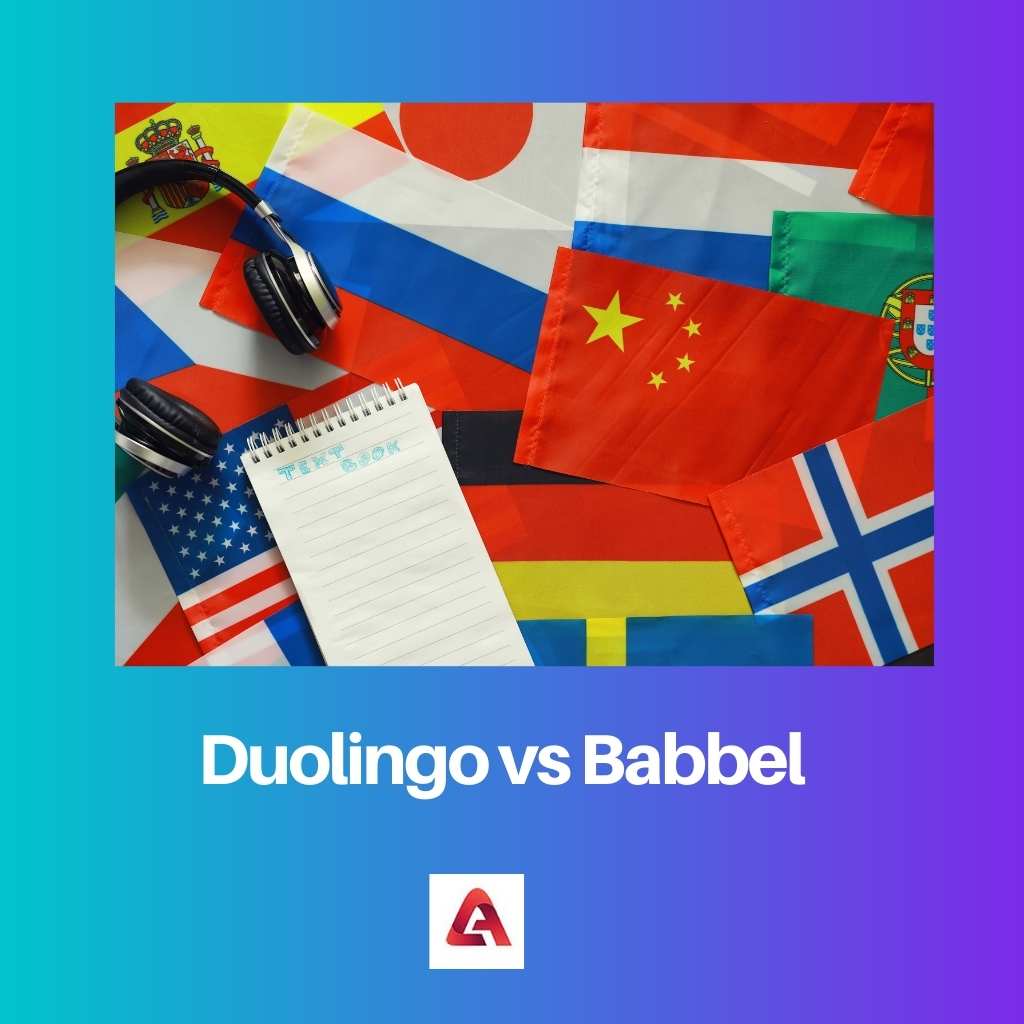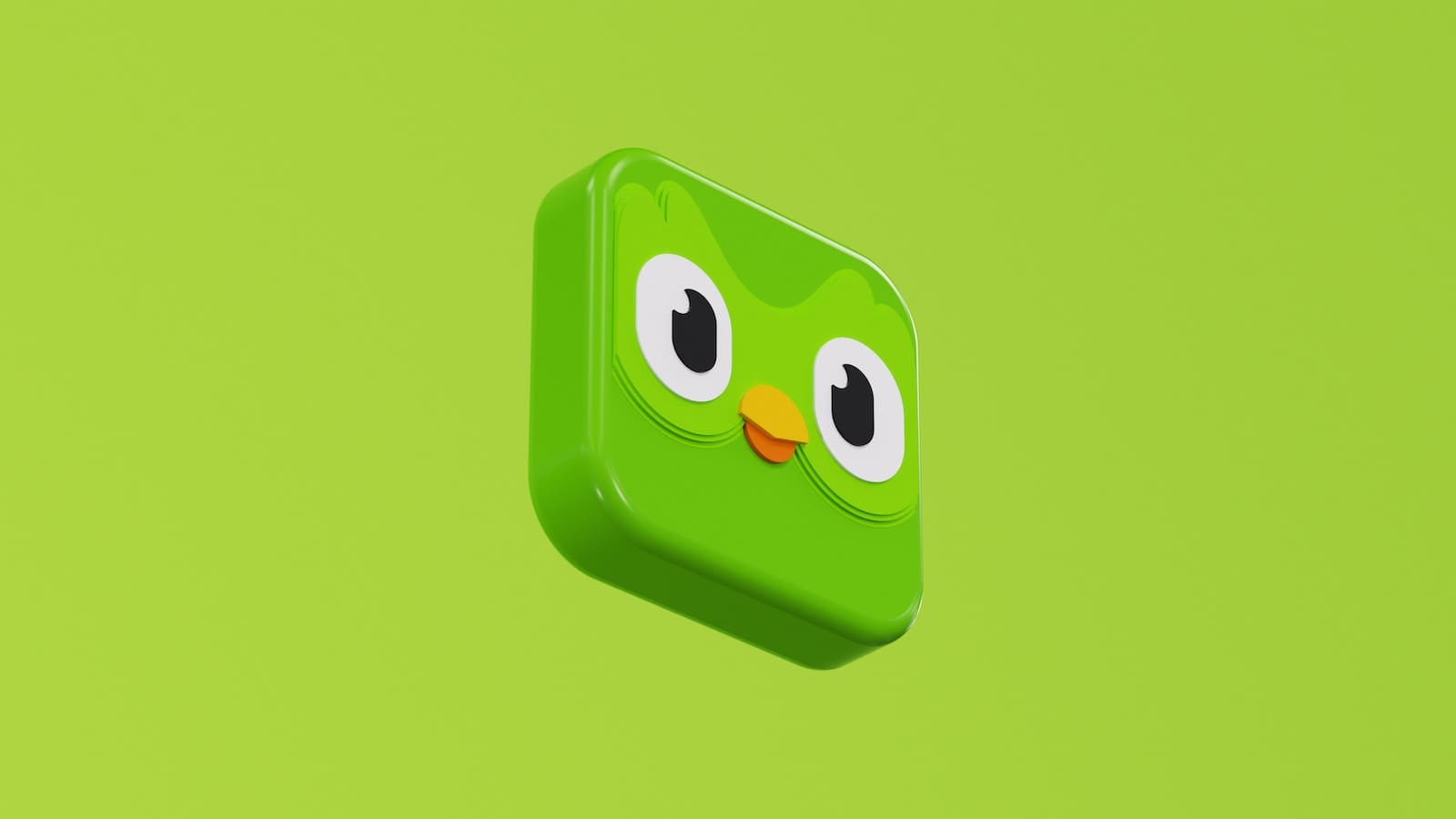Many individuals use applications and software to help them learn another language. Babbel and Duolingo are two well-known language learning services available online nowadays.
They both seem to have extensive vocabulary practice in a variety of languages.
Both are easily available and reasonably priced platforms for language training.
Key Takeaways
- Duolingo offers a gamified, engaging approach to language learning with a free, ad-supported model, while Babbel focuses on practical, real-world language skills with a subscription-based model.
- Duolingo covers a more significant number of languages, while Babbel provides in-depth courses for fewer languages.
- Learners should consider their learning preferences, budget, and desired languages when choosing between Duolingo and Babbel.
Duolingo vs Babbel
Duolingo is an app designed for beginners and intermediate learners. It is best suited for people who want to learn a language for fun or to learn a new language. Babbel is an app with a structured approach to language learning. It focuses on building practical skills and conversational proficiency.

Duolingo is a free language-learning platform and smartphone app for the general public that was launched in 2012 and is headquartered in Pittsburgh,
Pennsylvania, United States. Duolingo, one of the pioneers in online education, offers global services such as language lessons in over 35 different languages.
The software employs a variety of game-style approaches to keep users engaged and measure their performance as they master the language.
Babbel is a linguistic learning software developed in Germany, and the company was started in 2007. Babbel’s services are designed with a specific audience in mind;
they offer beginner, intermediate, and grammar courses in different languages keeping in mind the native language of the user and their level of proficiency in the new language.
It offers also Babbel Live which includes online interactive tutoring classes conducted by certified language experts.
The language-based learning app is easily accessible on the laptop and the phone.
Comparison Table
| Parameters of Comparison | Duolingo | Babbel |
|---|---|---|
| Level of Ease | Much easier for beginners | Little difficult for absolute beginners |
| Number of Languages | Over 30 | 14 |
| Paid Subscription | Many beginner lessons are free | The first lesson is free |
| Teaching Focus | Grammar and vocabulary | Real-life conversations and cultural immersion |
| Suitable For | Learners who want a beginner-level understanding of various languages. | Learners who want to completely master one language. |
What is Duolingo?
Duolingo is a language-learning program and website headquartered in the United States.
Users learn by navigating through “trees” customized to their favorite language, each with its own “skills” for understanding vocabulary, grammar, and articulation through spaced repeats.
Written translations, reading, spoken texts, and short tales can all be used as exercises. Duolingo now provides 103 distinct language courses in 40 languages as of June 2021.
Over 500 million people have signed up with Duolingo. The firm operates on a freemium model, with the app and website available for free, but Duolingo also provides a premium service for a price.
Trees are made up of abilities that each focus on a different feature of the target language. They are divided by parts, or units, each of which contains a subset of related abilities.
Skills can be vocabulary and grammar-oriented, but courses include skills related to color, idioms, partnerships, and nations. There are six levels of skills: 1, 2, 3, 4, 5, and Legendary.
When users finish a lesson or exam, they are awarded XP (experience points). Lessons may involve activities like pairing, transcribing, talking, and multiple choice.
The quantity of XP earned in a week determines league rankings.
In Duolingo, badges signify accomplishments obtained by achieving specified objectives or tasks. Duolingo offers “Duolingo for Schools,”
which includes capabilities that allow teachers to monitor their pupils’ progress in language acquisition.

What is Babbel?
Babbel is a German subscription-based language learning application and e-learning network that has been in operation in a multitude of languages since January 2008.
It is managed by Babbel GmbH, which is headquartered in Berlin, Germany. Babbel utilizes around 450 full-time and freelance employees.
The company’s headquarters are in Berlin’s Mitte neighborhood. The company was founded in August of 2007.
Babbel is a paid language learning program available for the web, iOS, and Android. A workforce of over 100 instructors and linguistics creates Babbel’s exclusive learning content in-house.
Every assessment has around 70 items taken from a library of hundreds of possible answers that, like Babbel’s course content, imitate proper communication settings such as radio programs and discussions for active listening.
There are beginner, intermediate, and advanced classes, as well as vocabulary courses, tongue twisters, idioms, idiomatic expressions, and catchphrases courses.
Language courses can be tailored to a particular demographic; for example, English can be learned as “PR English” or “Marketing English.”
Babbel is a language learning platform that strives for a mix of thoroughness and cost-effectiveness. The free version of this service simply provides an introductory lesson for each subject.
However, given that this is the sole disadvantage, it may be overlooked.
This service, like Linguist, allows you to travel through the courses as you see fit, and its main benefit is that each curriculum is tailored to the language in question.
While this appears to be reasonable, the truth is that many courses teach the same principles, simply in a different language.
Whether you visit a foreign nation, you may use Babbel without worrying about if the words you learned are correct or if you will cause a cultural issue.
Main Differences Between Duolingo and Babbel
- Duolingo is a lot simpler for beginners, while Babbel is a little tougher.
- Duolingo offers a wider selection of languages to study, whereas Babbel offers fewer language courses.
- Many starting classes on Duolingo are free, however, just the first session is free on Babbel.
- Duolingo emphasizes grammar and vocabulary, whereas Babbel emphasizes real-life discussions.
- Duolingo is best suited for learners who seek a basic grasp of a language, whereas Babbel is best suited for learners who wish to totally master a single language.
- https://www.cambridge.org/core/journals/recall/article/mobileassisted-language-learning-a-duolingo-case-study/A4D7C8F71782A37D258C19F357DDBCBE
- https://www.jstor.org/stable/pdf/calicojournal.27.2.233.pdf
